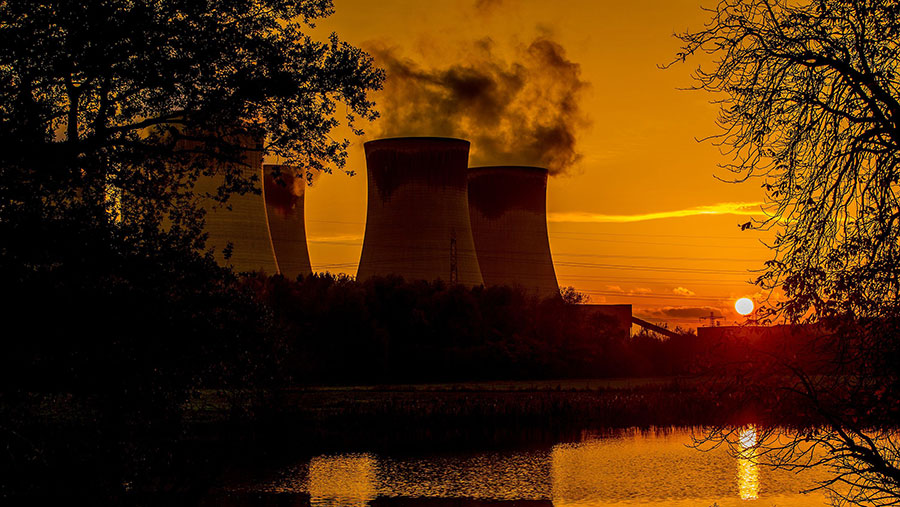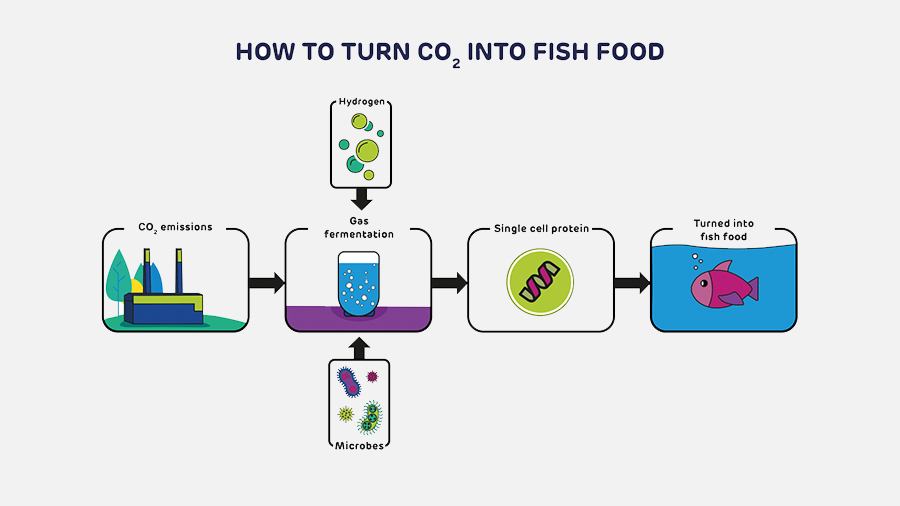Government cash for tech that turns carbon dioxide to feed
 © Charlotte Graham/Shutterstock
© Charlotte Graham/Shutterstock An initiative that converts carbon dioxide into animal feed is one of nine agritech projects to secure a share of £24m of government funding to drive more efficient food production.
Led by Nottingham company Deep Branch Biotechnology, the project will turn carbon dioxide from Drax Group’s Selby power station in North Yorkshire into an alternative to soya and fishmeal for the animal industry.
Deep Branch’s carbon dioxide-to-protein process uses carbon dioxide from industrial emissions to generate a single-cell protein that is optimised for animal nutrition.
The carbon recycling company and Drax Group are part of the Nottingham-based React-First consortium which will receive more than £2m for the project.

© Deep Branch Biotechnology/Drax Group
Farming minister Victoria Prentis said: “It’s great to see investment in these outstanding ideas which will help us tackle the farming industry’s greatest challenges, from achieving net zero emissions to investing in sustainable alternative protein for animal feed.”
A further project led by Saga Robotics in Lincoln will receive nearly £2.5m to fund its work to create a fleet of robots to help growers in the UK.
The consortium, which includes agri-robotics experts from the University of Lincoln, said the Robot Highways project could help reduce reliance on seasonal labour, estimating a 40% reduction in the manpower required.
The intention is to design robots that will help farmers by picking and packing fruit and treating crops to reduce pests and diseases.
Kent soft fruit grower Clock House Farm Ltd is part of the consortium. The technology also aims to help move the sector towards a carbon zero future – something the NFU wants the farming industry to achieve by 2040 – by reducing fruit waste and fungicide use.
The University of Reading’s School of Agriculture, Policy and Development will evaluate the economic benefits of the robots, and bring growers, policy-makers and tech developers together to create suitable uses for the technology in farming.
Dr David Rose, associate professor of Agricultural Innovation and Extension at the university, said: “Autonomous robotic technologies could play a key role in the future of agricultural production, but only if they are trusted, reliable, and provide a tangible benefit for farmers.”
